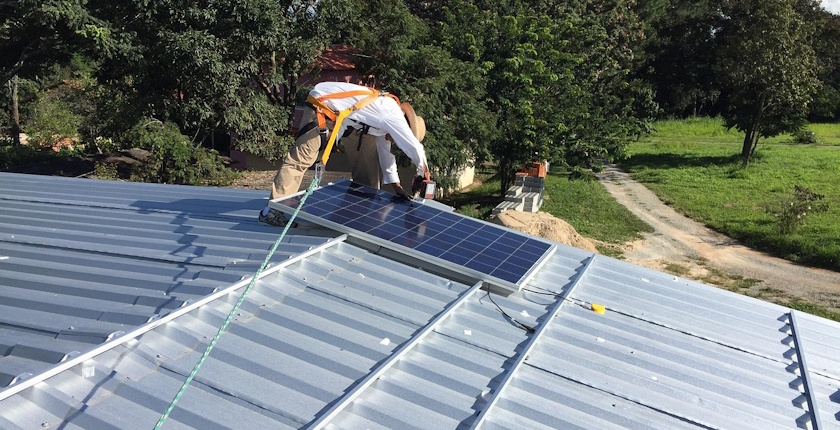Jobs in the European Union’s solar industry reached a record level last year, however they are dropping in 2025.
Nevertheless, the decrease in solar jobs this year could be only temporary, according to SolarPower Europe’s latest report.
Europe’s green job expansion continued in 20254, with EU solar jobs rising to a record high of 865,000. The sector’s 5% increase outperformed the wider EU labour market’s 0.8% growth, the EU Solar Jobs Report 2025 showed.
Most jobs, 86%, are provided by the solar deployment sector.
EU solar employment will face a temporary drop in 2025, of 5% decline to 825,000 jobs, due to slower solar deployment and manufacturing challenges, the update reads.
Nevertheless, the association expects solar workforce to grow over the coming years and reach 916,000 by 2029.
Solar delivers 825,000 quality jobs for Europe in 2025, said Walburga Hemetsberger, CEO of SolarPower Europe. It is incredible, she added.
“However, this falls short of the one million solar job mark we were hoping to reach by now, and for the first time in a decade, solar jobs growth has halted. We can’t ignore this warning. EU leaders have the opportunity to reverse course, stabilise the market, support EU solar manufacturers, and strengthen its skills strategy,” Hemetsberger stated.
The main reason for the decrease this year is a slowdown in residential solar. The share of EU rooftop solar workforce has been shrinking for the last three years, from 73% in 2022, to 59% in 2024, and it is projected to land at 56% in 2029, according to the report.
In July, the association estimated that the EU’s annual solar installations would come in weaker year-on-year in 2025 for the first time in a decade. The warning coincided with the month when solar power became the EU’s biggest electricity source for the first time.
Germany remained the leading EU country for employment
The largest national solar markets also represented the largest sources of solar employment in the EU.
Germany remained in the lead in employment last year, with around 128,000 direct and indirect full-time equivalent (FTE) jobs. However, the level tumbled from 154,000, registered in 2023, despite a jump in new installations to 17.2 GW from 15.1 GW.
Spain ranked second, with 122,000 FTEs. Italy saw significant growth, with the solar job market surpassing 100,000 workers, placing it third in the EU. Other top markets included Poland (90,000), France (66,000), Romania (62,000), and Hungary (47,000), the report adds.
SolarPower Europe issued ten policy recommendations for maintaining job growth:
- Establish a European solar skills intelligence hub.
- Scale and stabilize funding for renewable skills, with simplified access for small and medium-sized enterprises (SMEs).
- Map existing skills initiatives.
- Conclude sectoral agreements to enable large-scale retraining.
- Run coordinated campaigns to improve the attractiveness of technical green careers as well as apprenticeships and vocational training.
- Promote gender balance and diversity in solar careers.
- Develop cross-renewable career pathways and portable competence frameworks.
- Introduce a European solar skills passport.
- Adopt an electrification skills strategy that links photovoltaics with heat, mobility and storage.
- Invest in advanced digital and artificial intelligence (AI) training.
